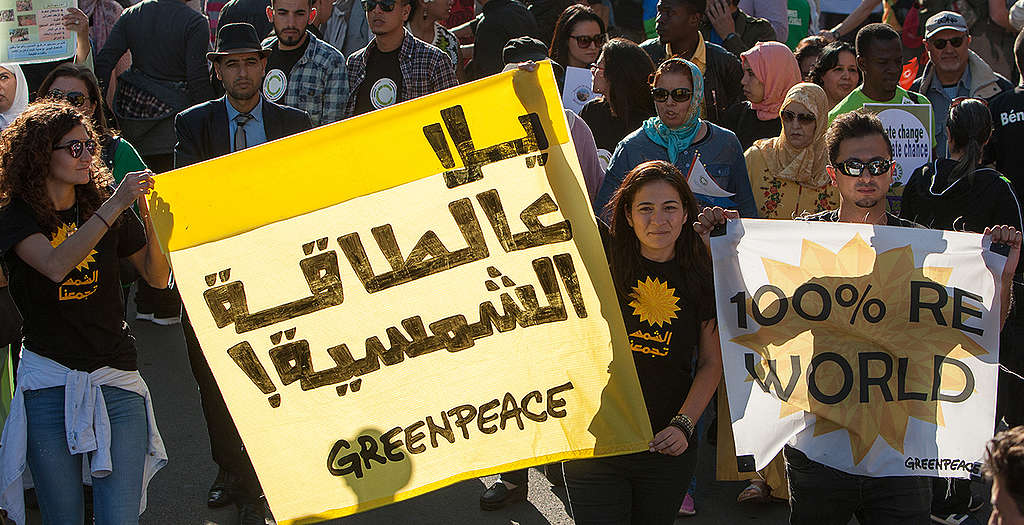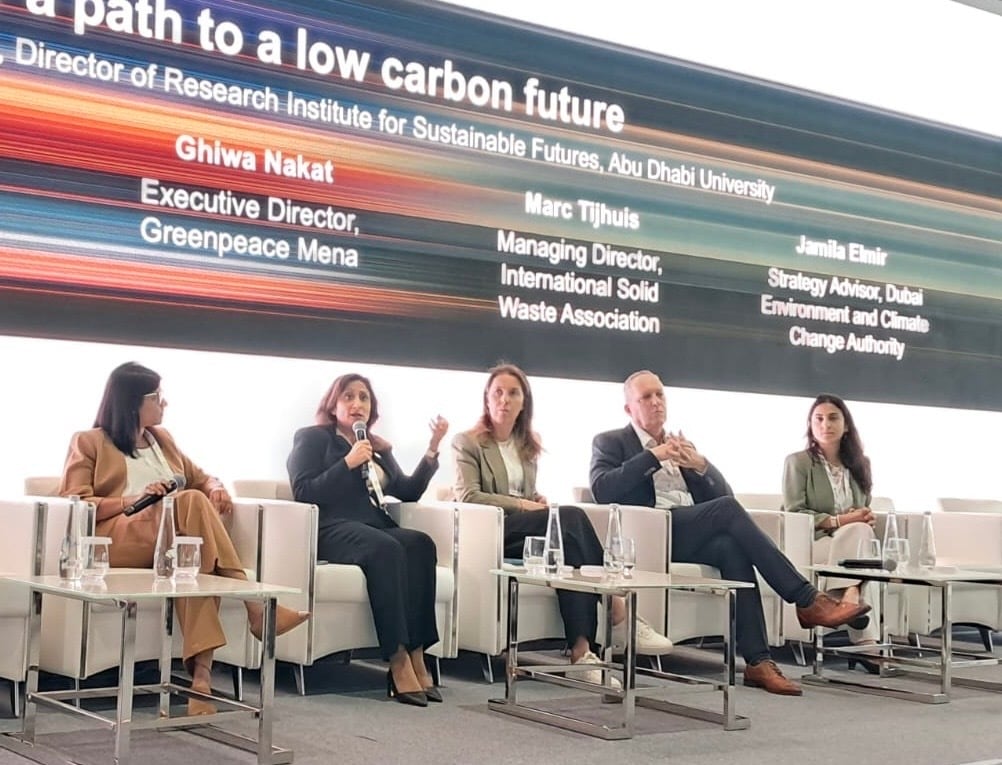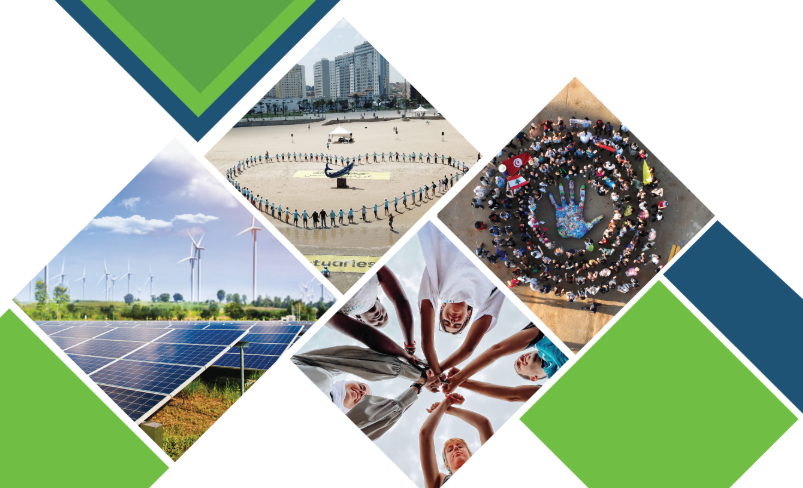
COP28, taking place in Dubai later this month, is set to be the largest climate summit ever. This COP represents a critical opportunity for world leaders to show the political courage that is needed to fairly and equitably end the age of fossil fuels and move towards a more sustainable and just future. The responsibility for change falls on all of us, including businesses, to address the climate emergency.
The ambitious COP agenda is looking to unite everyone, from governments and businesses to civil society, youth, and NGOs, in a concerted drive for inclusive progress towards climate action.
The importance of that cooperation was highlighted by last month’s open letter ahead of the climate summit from more than 100 members of the Alliance of CEO Climate Leaders who warned that the goal of limiting the global temperature rise to 1.5°C was at risk unless there was a big increase in public-private collaboration and action to accelerate emission reductions across global value chains. In addition to calling on global policy-makers to act, the coalition of CEOs and Senior Executives called for a massive scale-up of investment in renewable energy and power networks.
At COP28, more than 500 businesses and philanthropists will coordinate strategies to help address the annual financing gap of over US $3 trillion necessary for achieving net-zero emissions, reversing nature loss, and restoring biodiversity. The necessity of investing in our planet cannot be overstated. A resounding “final warning” from scientists in the Intergovernmental Panel on Climate Change (IPCC) report made clear that the current state of our planet is dire; nature is suffering, global temperatures are on the rise, and ever more frequent wildfires and floods are causing devastation to millions of people in our region and globally. Our very future depends on a new economic model that balances profit with sustainability and the well-being of the planet and people.
The solutions for a just and sustainable future are ready, and the funds required are within reach. The argument that there isn’t enough money for climate goals is no longer tenable. Richer countries must shed the cloak of ‘austerity’ and take decisive action, including ending subsidies to fossil fuel companies. The concept of “Polluters Must Pay”, whereby historic polluters take responsibility for their actions, would not only provide financial resources but also hold them accountable for the environmental damage they cause. For example, the loss and damage from last year’s Pakistan floods alone are estimated to exceed $30 billion. By 2030, it is estimated loss and damage could cost poorer countries between $290-580 billion per year.
Greenpeace MENA advocates for a two-fold approach for businesses to address the climate crisis. Firstly, corporate reform is essential. Businesses must invest in sustainable practices and adopt an economic model that balances profit with sustainability, and the well-being of the planet and people. Integrating sustainability into core operations, value systems, and company strategies is key to addressing the shared responsibility of businesses in leading the way to a more sustainable future. Secondly, businesses must go beyond mere compliance with regulations and actively embrace a just transition to renewable energy.
The rise of ethical business is undeniable. In the Middle East and North Africa, 78% of ‘Generation Z’ consumers believe that companies must behave ethically and in line with community expectations and 76% of Millennials believe that brands have a responsibility to make a positive change in the world. The success and growth of a business are now intrinsically linked to a robust Environmental, Social, and Governance (ESG) strategy, one that creates long-term value with minimal adverse effects on the environment or society.
The Middle East offers a unique opportunity for ESG initiatives to play a significant role in a just transition to a greener world. ESG is a way to encourage polluting industries to change and the rechannelling of fossil fuel subsidies would give businesses an added incentive to invest in ESG and sustainable green business practices in order to attract investment. ESG is potentially far more useful than Corporate Social Responsibility (CSR) as it goes beyond CSR’s concerns about social impact. Instead, ESG expands on the social and governance aspects by also quantifying the risk of ignoring environmental and climate hazards – and avoiding this risk is no longer a luxury or a choice but is becoming an essential barometer for shareholders and investors.
Ironically, it’s this very importance of ESG that has led to concerns about “greenwashing,” with companies keen to give the appearance of responding to the concerns of climate-aware consumers, while continuing business as usual. Greenwashing permeates all sectors. It’s not just about nature-inspired imagery or green buzzwords – it’s about companies carrying on with polluting business as usual while pretending they’re doing better. Common pitfalls include false claims of sustainability; selective disclosure of ESG information; and lack of third-party verification.
Green finance represents another significant, and currently untapped, opportunity for the countries of the Middle East which have well-developed capital markets. However, until now the financial sector has not kept pace with other efforts devoted to environmental sustainability. Green finance, which takes into account the environmental impact of investments in addition to purely financial returns, could accelerate the region’s goals of economic diversification and job creation. So far, challenges persist despite progress. It is critical that green bonds genuinely align with sustainability goals and it will be essential to hold financial institutions accountable for their investments, thereby promoting responsible choices.
Another important tool used by businesses in the Middle East is carbon emissions trading. While over 20% of global greenhouse gas emissions in 2020 were covered by carbon taxes or emissions trading systems, emissions trading is not a substitute for emissions reductions. Research into Verra, the world’s leading carbon standard, found that more than 90% of their rainforest offset credits are likely to be “phantom credits” and do not represent genuine carbon reductions.
If we delve a little deeper into carbon markets we find numerous problems in practice. There is difficulty in accurately calculating offsets because of the lack of sufficient information or because many of the techniques presume a linear relationship between emissions and climate change and also fail to take into account where the carbon dioxide was emitted. Secondly, carbon trading has made some developing countries more dependent on Western technology, thereby exacerbating gaps between rich and poor, and in some cases escalating agricultural and fuel prices. Perhaps even worse, many firms have quickly learned to game the climate trading system and started emitting greenhouse gases so that they can make money offsetting them.
Dubai and the UAE have the opportunity to send a powerful message to the rest of the world that eliminating fossil fuel emissions is both inevitable and essential. While the road ahead may seem daunting, especially given the region’s historical reliance on oil and gas, the journey is worthwhile. Change starts with us, and COP28 provides a dynamic platform for us to come together and create a sustainable future for all. We must act swiftly, without compromise, and with unwavering commitment.

Greenpeace has been protecting the environment for decades. We’ve stopped many crimes against the planet and held many corporations responsible for their actions. But there are always more scandals, more crimes and more destruction.
Join Us


